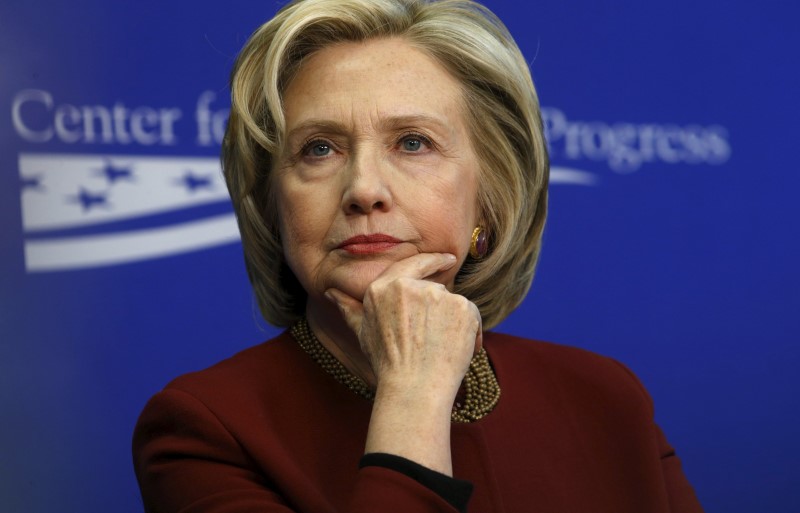Investing.com’s stocks of the week
By Amanda Becker
WASHINGTON (Reuters) - Likely presidential candidate Hillary Clinton called for better access to jobs and improved opportunities for the urban poor and the young on Monday at an event hosted by a left-leaning think tank.
In remarks that will likely appeal to her Democratic base, the former secretary of state said middle-class Americans risk being squeezed out of U.S. cities and called for cheaper housing, improved infrastructure and expanded jobs training.
She praised the work of the Clinton Foundation in urban centers. The foundation has faced criticism for receiving money from foreign donors while she was America's top diplomat and for failing to adhere to an agreement to disclose such money.
"One of the biggest issues we face is income inequality combined with wage stagnation," Clinton said. "They really go hand-in-hand. We don't have enough good jobs, we don't have people being placed into those jobs, we don't have enough social mobility."
While she has not announced her candidacy, Clinton is the presumed frontrunner for the 2016 Democratic nomination.
Some Democrats have called for a challenger for Clinton from the party's liberal wing. The Boston Globe on Sunday urged Massachusetts Senator Elizabeth Warren, a liberal critic of Wall Street and big banks, to jump into the race.
Warren, who spearheaded the creation of the Consumer Financial Protection Bureau after the 2008 financial crisis, has repeatedly said she does not plan to run. Former Maryland Governor Martin O'Malley, who also is weighing a campaign, attacked Wall Street last week in a speech in the early voting state of Iowa.
The former first lady took no questions from the media at the panel at the Center for American Progress, founded by John Podesta, a former chief of staff to President Bill Clinton and the likely chairman of Clinton's anticipated campaign.
Nor did Clinton address the controversy over her use of a private email account and server for State Department emails while she was secretary of state.
Clinton said the foundation had coordinated with unions to pool pension funds to train workers on energy retrofitting, generating "tens of thousands of jobs." She also highlighted the foundation's "Job One" program, which helps place young workers in their first job through partnerships with nonprofits and businesses.
She said policymakers and business leaders should "consciously try to set up better systems to reach out, find these young people and train them."
